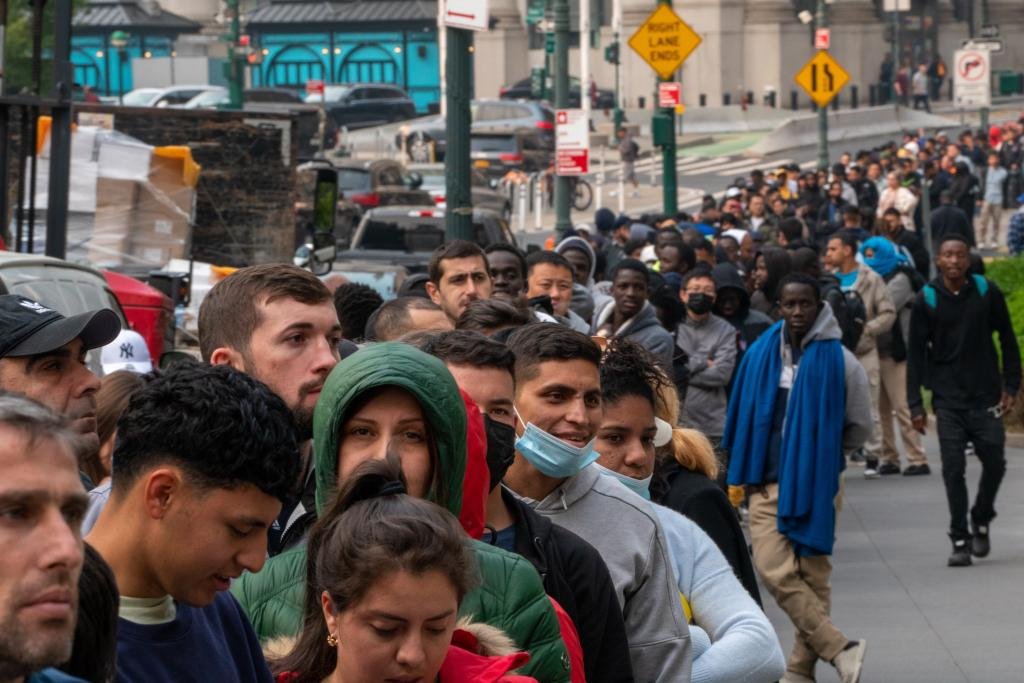All the People Say: Power to the Consumers
Commentary
Brendan Whitworth, CEO of Anheuser-Busch, has finally granted an interview on the Bud Light controversy. He managed to get through the interview without saying anything meaningful beyond the usual corporate cliches.
What remarkable talent it requires to be subjected to a 9-minute interview and say nothing about the only reason for the interview: the company massively insulted its main customer base and is now in meltdown.
Tellingly, he mostly spoke about the sufferings of the suppliers, the people who work for the company, the company’s new ad campaigns and messaging, and otherwise repeated his talking points as if he had been saying them in his sleep.
He pretended to be oblivious to the devastation to the brand and the company. In truth, he is not: it’s the disaster of his life. He just figures that if he puts on a good face, it will all go away at some point. Like many people in his position and class, he figures that messaging, framing, and posturing can fix everything. It’s all about the optics to these people.
That’s what Anheuser-Busch and every other commentator has been saying for months, but the problem keeps getting worse. Bud Light went from being number one to a joke for the ages, all with one major misstep, backed by many others too (Canada’s Bud Light website is still touting Pride Month and bragging about its philanthropic largesse to left-wing activist groups.)
My prediction is that the brand will eventually be decommissioned entirely. The company will need to do this else face meltdowns in its other brands. Duplicitous, manipulative, and condescending interviews are not going to fix this.
Consumers are no longer merely along for the ride. They are taking their power seriously. They are simply making other choices. To take down the number one beer in the United States is serious business. And it’s awesome to contemplate the implications.
And by the way, I’m fed up with hearing how the beer is being “boycotted” by “conservatives.” The point is that regular people are sick of the preposterous lie that anyone including children can and should change their sex through pills and surgeon scalpels and the rest of us are required to go along and thus throw out settled patterns of gender interaction of all recorded history.
And yet, even if nothing about the trans promotion offends you, you should still be thrilled to see what is happening. For me, this is not a matter of liking or not liking some dysphoric misogynist punk on TikTok. This is not another round of the culture wars. The real issue goes to the fundamental principle of who should have power in an economic system: the big shots at firms like BlackRock and Fidelity, the World Economic Forum (WEF), the government, or regular people?
Or consider another case: Walgreens. It rode the pandemic and shot mandates to enormous profitability. But consumers have changed. Hardly anyone wants those things anymore. The mandates are gone and people have rejected them and their dispensaries. The shots are going the way of the tests, masks, and face shields: straight to the dumpster. When Walgreens reported its terrible sales numbers, and its malinvestment, the stock was slammed.
So it’s not just Bud Light. It’s true in industrial media too. CNN fights for eyeballs while unscheduled appearances of Tucker Carlson on Twitter rack up many millions of views in hours. The New York Times gets by on its word games and crosswords while The Epoch Times keeps gaining market share.
We are seeing the formation of a genuine consumer revolt against the establishment’s favorite companies.
What is the meaning of all of this?
Let’s address this question with a historical context.
What was the crucial difference between feudalism and capitalism? What marked the change in the economic systems under which people lived? In feudalism, the lords of the large estate determined living conditions, food allocations, and effectively owned the tenants, in exchange for which they were given security, at least in principle. With capitalism, average people came into possession of money, which enabled them to move, choose new lines of work, go to markets of their choosing, and forge a new path to progress.
With all these changes came the most dramatic of all. The power of economic decision-making over the use of society’s resources transferred from producers and the aristocracy to consumers themselves. It was they who came to determine what was produced, in what quantity, in what quality, and therefore which businesses thrived and which died. The consumer became king. This was the distinguishing mark of the dramatic social and economic changes from the 15th century over the next 500 years.
It remains true today. You can discern the existence of capitalist structures by the extent to which consumers themselves are in charge while producers and government are put in the position of deference to public wishes. This became most evident in the marketing campaigns of the 19th and 20th centuries. These were directed toward average people because average people had the power to make or break production priorities.
Elites have always resented and resisted consumer control because it means that average people rather than the privileged few are in charge of the shape of commercial life. The major resistance to the Industrial Revolution came not from workers but from royals and aristocrats. As economies grew, large industrialists took the place of the aristocracy in pushing against consumer sovereignty. They had some success in large resource-based industries and the military but retail, media, and new technology was off-limits.
This is what made the lockdowns of 2020 so enormously radical and impactful. They brought the cartelized forms straight into sectors where they had not dominated before: retail, hospitality, services, travel, and with food distribution. The entire pandemic policy was structured to crush small businesses and disempower consumer control. Instead of being masters of the economic realm, consumers were herded like cattle and told to social distance. Then they were masked. Then they were jabbed with an experimental shot.
Those days are gone but consumers are left with a sense of fury and a desire to know the truth. What business interests were behind this fiasco? Why did WalMart and Target stay open but Max’s Burgers have to shut? This happened all over the country. A careful look at the large companies reveals they have stopped caring as much about consumers and more about their WEF-connected financial powers that are pushing a political agenda that insults average people at every turn.
Gradually, post-pandemic people are finding their voice and their power to choose how they use their money. Shop local, support small business, and reject ESG and DEI. And no area in life is more central than health and nutrition. During the last three years, the expert class took over the management of our bodies and failed miserably. This is why we are seeing such a huge new focus on nutrition, naturopathic care, and fitness.
A new realization is in the air: either all of us take charge of our lives or let them drive us to an early death. Pharma in particular has fallen on hard times. It’s a fate they deserve given the grafting and poisoning of recent years.
This new consumer movement is completely consistent with the history and meaning of capitalism itself. Indeed, consumer power is its very essence. The fascists, socialists, corporatists, and revanchists have always and everywhere fought against it: witness the slogan of WEF that we will own nothing and be happy. And they will keep it up until we say no.
The greatest kept secret of our economic lives is that regular consumers can make a huge difference in the shape of production structures. This is what is important about the Bud Light, Target, and Walgreens cases: they put that reality on display for everyone to see. Power to the consumers! We have nothing to lose but our chains.
Views expressed in this article are the opinions of the author and do not necessarily reflect the views of The Epoch Times.





